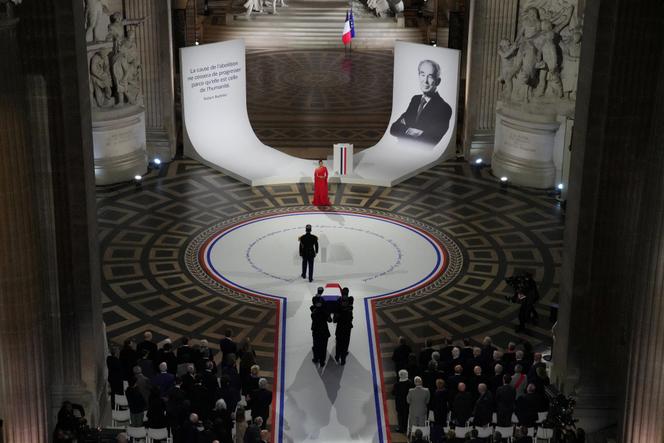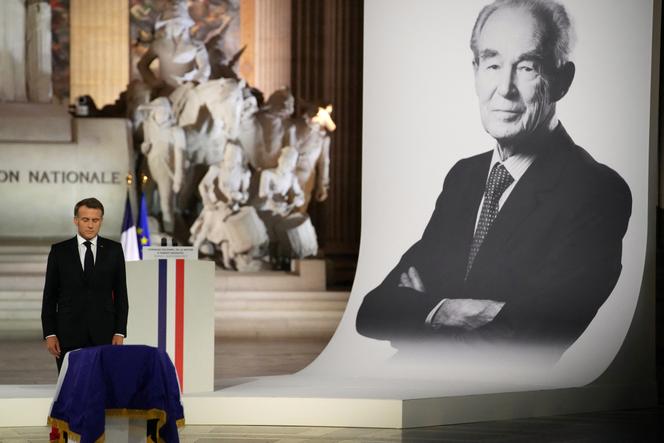


Robert Badinter, the justice minister who ended the death penalty in France in 1981, entered the country's Panthéon mausoleum of outstanding historical figures on Thursday, October 9, just hours after his grave was vandalized. Badinter, a lawyer who campaigned for an end to capital punishment after one of his clients was beheaded with a guillotine in the 1970s, died last year aged 95. His legacy also includes a 1982 law to decriminalize homosexuality.
His remains are to stay in a cemetery outside Paris, but officers carried a symbolic casket draped in a French flag into the former church on the capital's left bank under a cascade of applause. The coffin contained his lawyer's robe, a speech he made against capital punishment and several books, his wife told the TF1 television broadcaster.


President Emmanuel Macron, inside the Pantheon, said Badinter's voice would ring out in posterity. "As he enters the Pantheon, we hear his voice advocating for these great, essential, and unfinished battles," he said, mentioning "the universal abolition of the death penalty," as well as the fight against anti-Semitism and to uphold the rule of law. "These are causes that transcend centuries," he added.

Badinter joined other national heroes, including author Victor Hugo, French-American member of the French Resistance Josephine Baker and Simone Veil, the women's rights heavyweight and health minister who championed legalizing abortion.
Until its abolition, capital punishment in France was carried out by beheading with the guillotine, a practice dating back to the French Revolution of 1789. The soft-spoken attorney was widely vilified for pushing through legislation banning the death penalty at a time when most French people still supported the practice. He was in his later years hailed for his integrity and statesmanship.
But his tombstone was defaced on Thursday morning, local authorities said. "Eternal is their gratitude, the murderers, the paedophiles, the rapists," read blue graffiti on his tombstone. Macron almost immediately responded on X: "Shame on those who wanted to sully his memory," he wrote.
The son of a Jewish fur trader who died in a Nazi concentration camp during World War II, as a lawyer, Badinter built a reputation defending clients his peers wouldn't touch. Badinter's advocacy against capital punishment started in 1972, following the beheading of his client, Roger Bontems, for his secondary role in murdering a nurse and guard during a prison escape.

Five years later, haunted by his failure to prevent Bontems' death, he convinced a jury not to execute Patrick Henry for the murder of a seven-year-old boy, becoming an instantly hated figure among the French public. He used the case as an opportunity to weigh the death penalty, calling in experts to describe the workings of the guillotine in grisly detail. "Guillotining is nothing less than taking a living man and cutting him in two," Badinter argued.
In all, he saved six men from execution during his career, eliciting death threats in the process. Badinter made ending the death penalty an immediate priority after becoming justice minister in June 1981, ushering a bill through parliament just months later. The last person to be executed in France was in 1977 with the death of Hamida Djandoubi, a Tunisian immigrant convicted of torturing and murdering a young woman.
A museum in the southern city of Marseille earlier this month assembled an 800-kilogram guillotine to shine light on Badinter's legacy among its visitors. After ending capital punishment, Badinter in December 1981 spoke in parliament in favor of decriminalizing homosexuality, with a law passed the following year.
